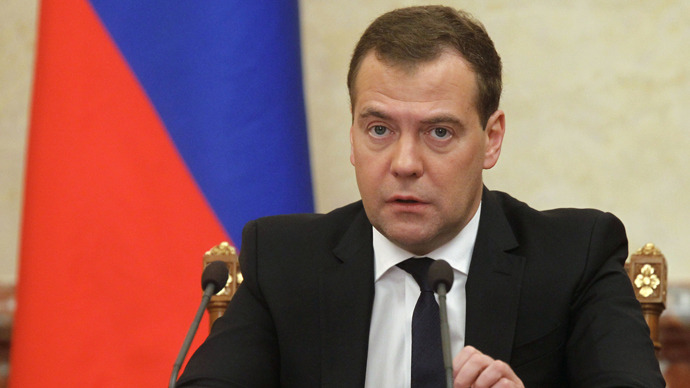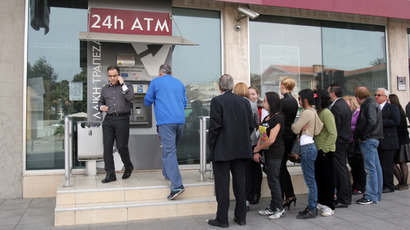Troubled Cyprus prompts Medvedev to create Russia's own offshore zone

While some Russian businesses are feeling the pinch in Cyprus, Prime Minister Medvedev has voiced the idea of offshore zones in Russia at a regular meeting of the government, where a state project to develop Russia's Far East was discussed.
"If there is so much fuss going on, may be we should think of
creating a kind of zone of our own in the Far East. We have bunch
of good places there -- Sakhalin, the Kuril islands," Medvedev
said, referring to the ongoing economic turmoil in Cyprus.
Speaking about the project, Medvedev called the budget for it as
"unprecedentedly big" -- more than $323 billion. The money will be
mostly spent on transport infrastructure in the two remote
regions.
Offshore catch of the day
In offshore zones non-residential companies are treated to a number
of privileged rules and undergo light registration, licensing and
taxation. The Bahamas and British Virgin islands are among such
zones and local officials pay little interest in the activities of
international companies. Dmitry Medvedev hopes, some of the money,
parked there, would "move" to a Russian offshore region, if
created.
Russia has a number of so-called offshore zones, or special
economic areas with favorable tax legislation. The exclave region
of Kaliningrad is one of them. Chukotka region and Republic of
Kalmykia were also among the privileged areas which have had
reduced taxation until 2004.
Russian offshore zones have a number of accompanying demands.
Companies operating in such zones are obliged to have accounts in
Russian banks. Also, despite a light version of taxation, a company
must pay a quarterly fixed fee, which varies depending on the area.
Furthermore, taxes must be paid on the place where the business was
registered, regardless of the area the business is being conducted
in and here the legal entity faces another hurdle – resentful local
tax authorities often prove unhelpful with local bureaucracy
becoming an added burden.
The first official tax haven in Russia was created in the Republic
of Ingushetia in 1994 to boost the regional and national economy,
but it didn't survive long. The project seemed blighted from the
start with, poor decision making mixed with a murky business
environment. Instead of creating a body that would govern the area,
the Republic's authorities delegated power to a private company,
that was founded by a parental joint-stock corporation with its own
subsidiary bank. The next troubling sign came when a local tax
inspection was created, that was not included in Russia's state tax
service list. All these added to the closure of the tax haven's
door just three years later after its inception, in 1997.














